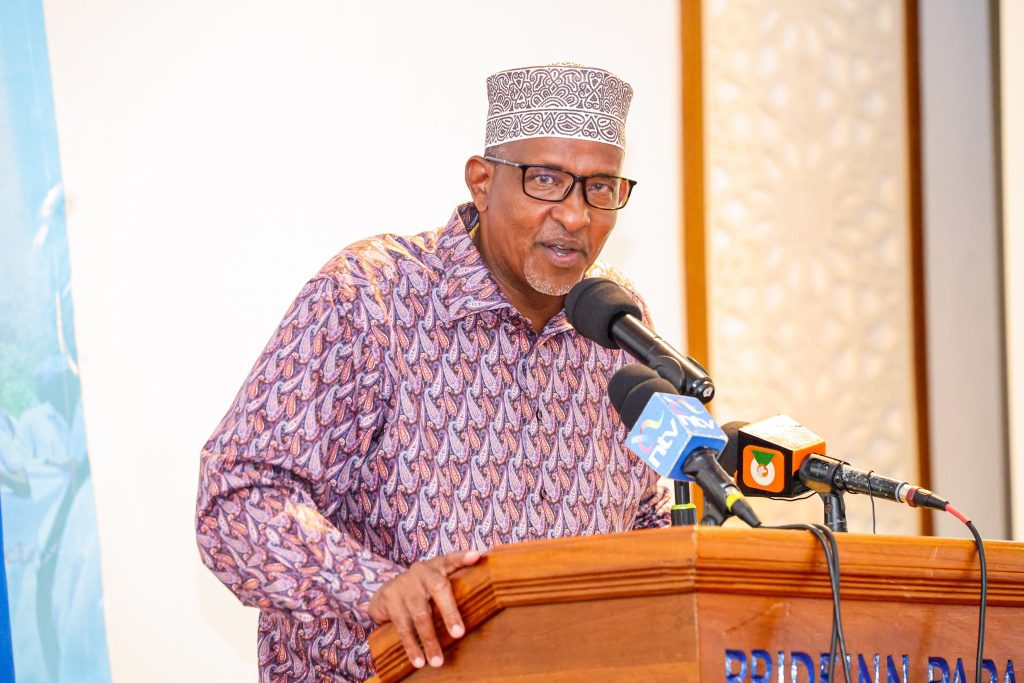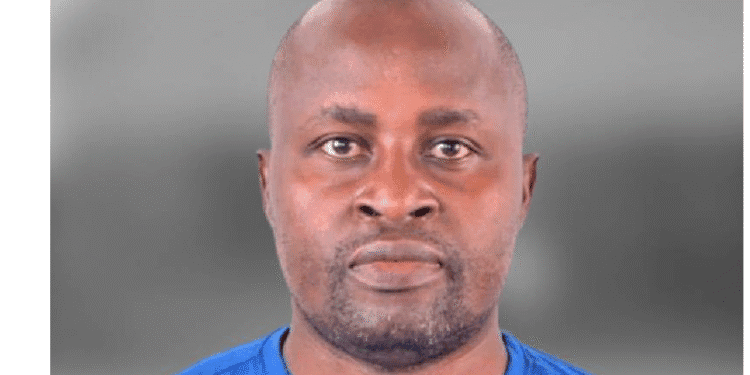In the serene yet strife-torn shores of Rusinga Island, a tragic query grips grieving communities: how did a land dispute lead to the TUK professor’s murder? Prof. Thomas Tony Onyango Mboya, an esteemed Associate Professor and Director of the School of Mathematics and Statistics at the Technical University of Kenya (TUK), was brutally hacked to death on September 30, 2025, at his family home in Kakrigu Village, Rusinga East Location, Mbita Sub-County, Homa Bay County.
According to Standard Media’s gripping coverage, the 55-year-old academic fell victim to a simmering family land wrangle that escalated from heated arguments to a machete-wielding ambush, leaving his elderly father critically injured.
As Homa Bay mourns one of its brightest minds, a statistician whose research on sustainable fisheries bolstered Lake Victoria’s economy, this incident exposes the deadly undercurrents of inheritance battles in rural Kenya, where ancestral plots worth millions spark generational feuds.
The roots of this fatal clash trace back years, as detailed in Standard Media’s investigative piece published hours after the attack. Prof. Onyango Mboya hailed from a lineage tied to Rusinga’s fertile volcanic soils, where land isn’t just property but a legacy of Luo heritage.
After Prof. Onyango’s return from Nairobi last year, the disputed four-acre parcel in Kakrigu, inherited from his late grandfather, became a contentious issue. Family elders claim he initiated boundary surveys in June 2025, hiring surveyors to erect beacons amid protests from cousins who argued the land was communal under customary law.
“It started with shouts over old title deeds,” a relative told reporters, echoing Standard’s narrative of ignored mediation attempts at the local chief’s baraza. By August, threats had escalated, with anonymous calls warning, “blood will spill,” yet Prof. Onyango pressed on, viewing the plot as his family’s economic lifeline for fish farming ventures.
But how did the land dispute lead to the TUK professor’s murder? Now the pattern: in Homa Bay, 40% of homicides stem from such rows, per 2024 police data, often fuelled by poverty and unclear colonial-era demarcations.
The morning of the murder unfolded like a nightmare scripted from those warnings. Standard Media reports Prof. Onyango and his 78-year-old father, Mzee Ochieng Mboya, set out at dawn to reinforce the beacons, armed only with hoes and optimism.
As they hammered posts under the island’s acacia shade, two masked assailants, believed to be nephews in their 30s, emerged from the sugarcane thickets, panga blades glinting.
“They came yelling, ‘This land is ours!'” a witness recounted, describing the frenzy:Prof. Onyango shielded his father, only to suffer deep gashes to the head and neck, collapsing in a pool of blood.
Mzee Mboya, slashed across the arms, staggered to a neighbor’s homestead and dialled for help on a borrowed phone. Mbita Deputy County Commissioner Peter Mutiso confirmed the professor died en route to the clinic from a massive haemorrhage; his body was ferried to MED-25 Kirindo Mortuary.
The father, stabilised at Mbita Sub-County Hospital, whispered to investigators about prior beefs traced to a 2018 will contest, where Prof. Onyango was named executor, igniting accusations of favouritism.
Mbita MP Millie Mabona Odhiambo, in a fiery presser, decried the killings as “barbarism in paradise”, vowing parliamentary probes into land dispute violence in Suba. “Violence never sorts issues; it buries scholars,” she thundered, linking it to 15 similar clashes on Rusinga since 2020. Police launched Operation Clean Sweep, raiding suspects’ homes and seizing bloodied tools, with DCI Homa Bay boss Jane Muthoni promising arrests within 48 hours.
Community vigils lit up Kakrigu’s shores that night, with fishermen chanting Luo dirges for a man who tutored their sons in statistics via TUK’s outreach programmes. For those probing how the land dispute led to the TUK professor’s murder, experts cite weak land registries: only 60% of them are digitised in Nyanza, leaving room for forged deeds and vigilante “justice.”
This tragedy ripples beyond one family’s grief, spotlighting Kenya’s land crisis. According to judiciary reports, 70% of court cases are related to inheritance, with rural islands like Rusinga bearing the brunt, where plots yield tilapia gold but breed bitter divides.
Prof. Onyango’s colleagues at TUK remember him as a gentle innovator, authoring papers on econometric models for smallholder farmers; it’s ironic that such intellect couldn’t map peace at home.
Initiatives like the National Land Commission’s free mediation clinics offer hope, but uptake lags at 20% in Mbita, hampered by mistrust. As investigations unfold, the professor’s widow, Dr Amina Onyango, pleads for calm: “He died defending our future; don’t let hate claim more.”















